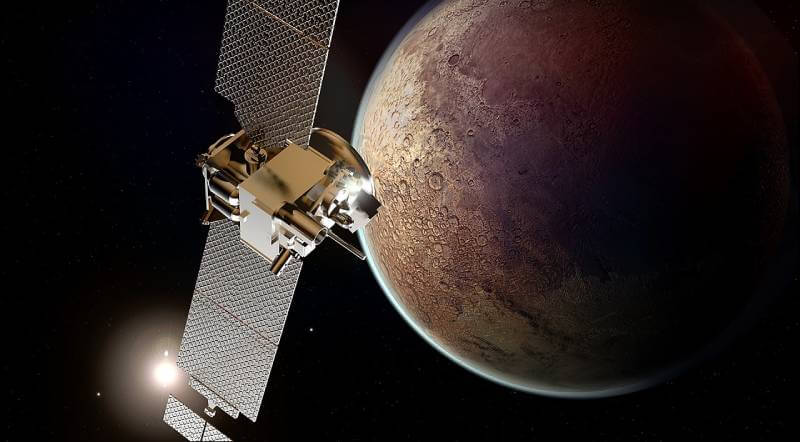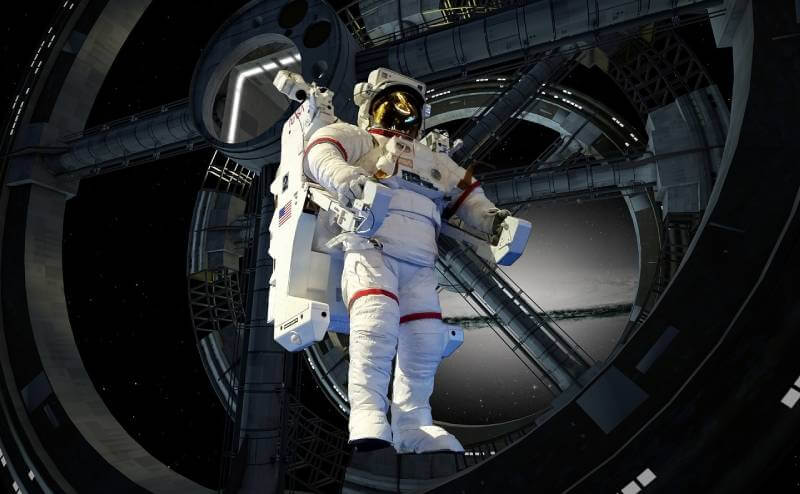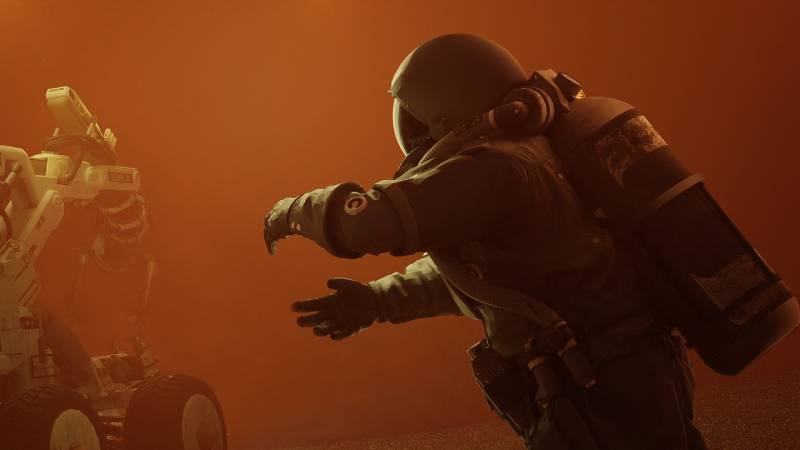People have been obsessed with the Red Planet since ancient times, but the idea of sending people to Mars really took off in the late 1940s. While we’ve already sent robotic spacecraft and rovers (unmanned missions) to Mars, humanity still hasn’t made it any further than the moon. That’s our cosmic backyard!
Will we finally send astronauts to Mars sometime in the near future? When will we send astronauts to Mars?
Before we can answer those questions, it’s time to go back to basics and explore if astronauts can go to Mars. In other words, is the journey to the Red Planet possible with current technology, and is it survivable? Can people safely touch down on Mars, collect important data, and make it back to Earth?
What’s Needed To Go To Mars?
Broadly speaking, humanity would have to meet three critical conditions to send astronauts to Mars.
Can you guess what they are? Of course you can — appropriate technology that makes the journey possible and survivable, funding, and adequate motivation.

NASA wrote a report explaining that people weren’t quite ready to go to Mars back in 2004, but technology has evolved since that time. The emergence of private space companies like SpaceX has also transformed the industry, and these companies have the potential to make funding the likes of which we’ve never had access to before available. Are we just low on willpower, then?
It’s not quite that simple.
Challenges We Need To Overcome Before Astronauts Can Go to Mars
With current technology, the shortest trip to Mars would take between six and nine months, assuming that NASA or other space agencies plan a mission that allows for an ideal alignment of the two planets.
That may not seem like a very long time, but it is.
According to NASA, the radiation exposure astronauts would face during the trip is one of the biggest risks of sending people to Mars. The Soviet cosmonaut Yuri Gagarin became the first human to go into space in 1961, and that technically means we’ve been a “spacefaring” species for over six decades at this point.
However, we’ve never made it further than the Moon, and a typical stint on the International Space Station doesn’t last longer than three to six months (although some astronauts have stayed in space for nearly a year). So even assuming everything goes right, which it never does in space, a round trip to Mars would represent the longest time anyone has ever been in space.

We currently have no idea how that affects human health. In addition to the risk of radiation, the effects of the microgravity these first Mars explorers would be exposed to remain unknown.
Another challenge is designing life support systems that can’t just sustain life during the trip but also for an extended stay on Mars. Beyond radiation protection, life support includes oxygen, water, food, and waste management.
As far as transport goes, current chemical propulsion systems could get us to Mars and even beyond, but funding remains an important consideration in that regard.
If we got there, would people be able to land on Mars? With the data NASA has gathered about the planet’s surface and atmosphere, that’s likely another “yes.” Entry, descent, and landing are always risky, but what astronaut wouldn’t want a chance to be the first on Mars?
In short, current technology may allow people to go to Mars, but we still have some challenges to overcome before the dream of landing on the Red Planet can finally become a reality.
Is NASA Planning To Send Astronauts To Mars?
Yes! We live in an exciting new space age fueled by increased geopolitical competition, an emerging private space exploration industry, and the looming threat of climate change. NASA is actively planning to send a manned mission to Mars, but this plan will unfold in stages.
The first step? Sending people back to the moon. Artemis 2 will consist of a team of four astronauts who will launch and head for the moon no later than November 2024 in the cutting-edge Orion spacecraft.

After that? The North American Space Agency plans to send more Artemis missions to the moon and has also set itself the goal of landing astronauts on an asteroid by 2025.
When will we be ready for Mars? According to NASA’s current estimates, a manned mission to the Red Planet should be achievable sometime in the 2030s — not too far off. Meanwhile, Mars Rovers and other robotics will keep collecting data that will help the first-ever space colonists find their way.
Conclusion: Will Astronauts Go to Mars?
Of course! We have to conquer our own cosmic backyard before humanity can ever venture out to the stars to explore other star systems, and Mars is the obvious next step.
We’ve been dreaming about it for nearly a century. Hundreds of science fiction and non-fiction books have been devoted to the subject, and there’s no question that we’re ready for a whole new challenge. It will likely take inter-governmental cooperation and a private-public partnership of dimensions never seen before to make it happen, but it will.
With the right motivation, technology would advance more quickly than ever, and we would quickly scramble the funding needed to send astronauts to Mars. While we’re already motivated to go to Mars, news that the Earth is likely to pass the crucial 1.5 degrees Celsius climate change limit within a few short years may just give us a nudge in the right direction.
It’s important, of course, to remember that sending a manned mission to Mars is not the same as building permanent colonies on the Red Planet. That dream is likely to take a whole lot longer. However, some of the people reading this may just live to see it happen.
After that? Who knows! Humanity has never stayed static for too long, and one day, we may become an interstellar species. Let’s just hope we don’t divert all our resources to space travel, and we also remember to take care of our birth planet.

